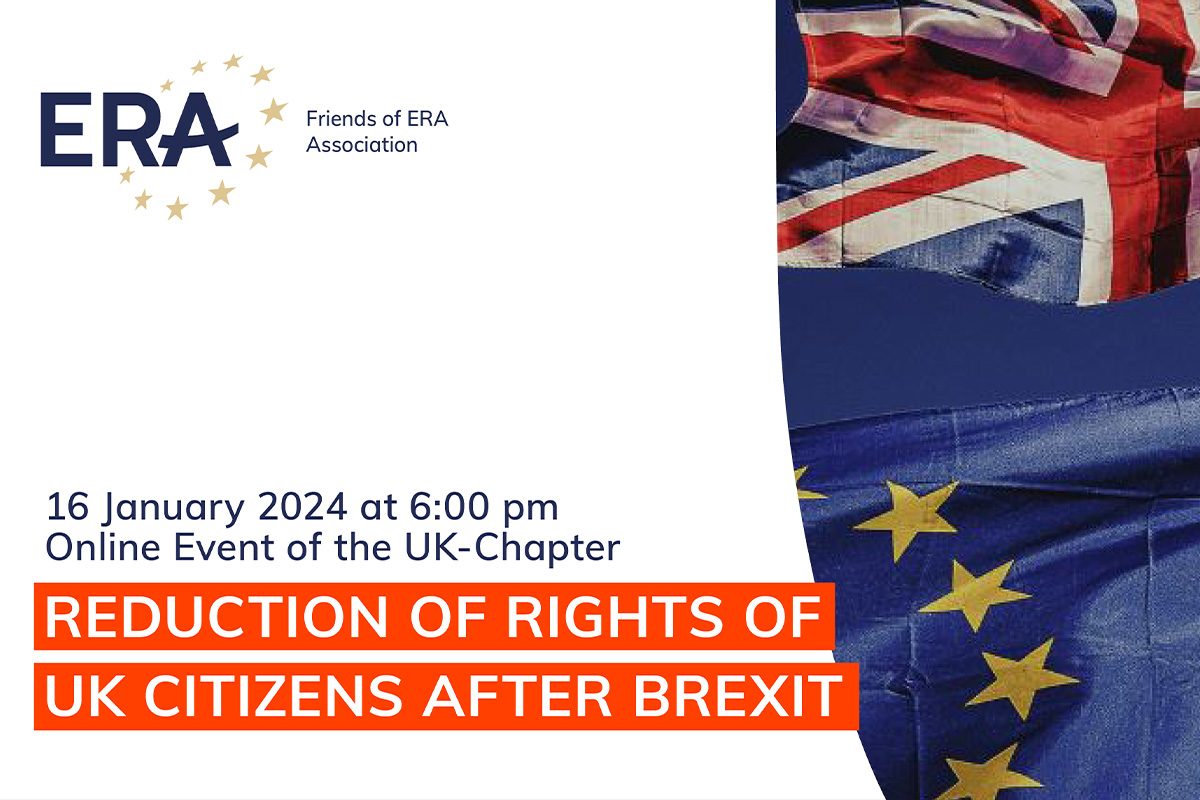Despite the late hour, 38 participants gathered last night on screen for the third online event of the UK Chapter of Friends of ERA. An excellent panel of experts brought us together to listen to their perspectives on ‚The Reduction of Rights of UK Citizens after Brexit‚.
A big thank you to our guest speakers, David Jones (barrister at Garden Court Chambers) and Professor Elspeth Guild (Jean Monnet Professor ad personam) who talked about the implications of Brexit.
These were the key takeaways from the session:
- One of the reasons given by those promoting that the UK leave the EU was to ‘get back control’ of the UK borders. In fact, the UK has lost the control it had as a Member State because immigration from 3rd countries has increased exponentially. Moreover, there has been a net departure of EU nationals.
- As UK citizens have lost their EU citizenship their rights of free movement within Member States and fast-track EU border controls. The rise in asylum applications and “small boats crisis” has demonstrated the failure of Brexit to enable the taking back of control and the loss of the Dublin Regulations removed any credible system for returning asylum seekers to a safe third country in the EU.
- The UK government’s handling of the crisis has led to its publication of two pieces of legislation, one of which has passed into law (Illegal Migration Act 2023 and the Safety of Rwanda Bill 2024) aspects of which it acknowledges are likely incompatible with the UK’s obligations under the ECHR.
- Brexit contributed to Britain’s particularly high inflation by introducing friction into the country’s most important trading relationship and loss in value of sterling.
- UK Citizens have also lost the benefit of the C-370/90 Surinder Singh arrangements.
- On the date of the UK leaving the EU, EEA citizens derive their legal status to remain in the UK from the EU Settlement Scheme. The rules and guidance on implementing the Scheme have been complex and refusals given without reasons.
- Rights under the Scheme are recorded electronically and not paper based. The quality in functionality of the data and availability of access to the Scheme has been problematic.
In case you missed this, the presentations and the recordings of the speakers are available at request.
